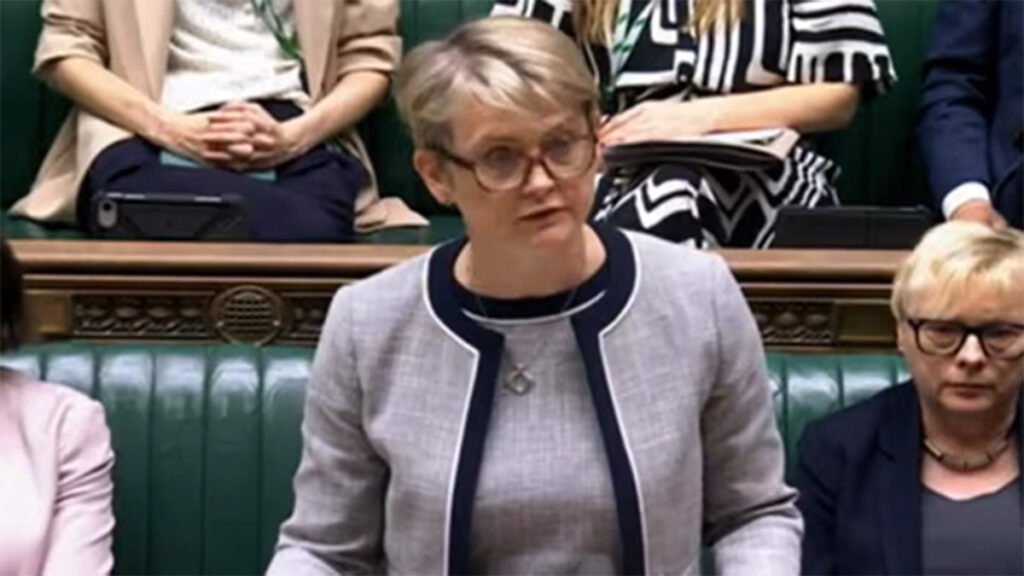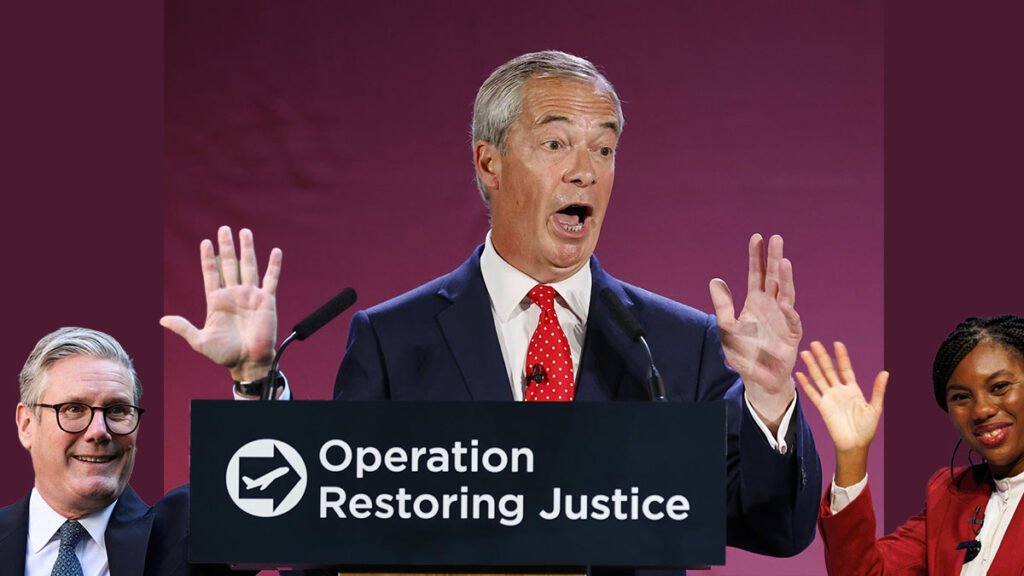The Bell Hotel Saga: A Mirror to Britain’s Broken Asylum System
The Court of Appeal has overturned an injunction that briefly ordered the forced removal of asylum seekers from the Bell Hotel in Epping. On paper, it is a technical ruling: judges weighed the fears of local residents against the danger of incentivising protest, and concluded that the “status quo” must be maintained until the case is heard in October.
But beneath the legalese lies a snapshot of a national crisis. Hotels up and down the country become holding pens for migrants, predominantly young men, while angry residents stage protests outside their doors. The government, too paralysed to process asylum claims with any efficiency, contracts private firms to warehouse human beings at vast public expense. Communities are told to bear the burden in silence. Migrants are told to wait, sometimes for years, in limbo. Nobody wins but the billionaires feeding from the crisis.
The optics are corrosive. Working people see young men idling in hotels while their own families struggle to find affordable housing. Migrants, some traumatised by war or persecution, are trapped in bureaucratic purgatory that breeds resentment on both sides. The legitimate question – why leave safe France for Britain? – hangs unanswered, exploited by those who prefer flag-waving to solutions. The government, meanwhile, insists it is ‘taking back control’ even as its policies amount to managed drift, outsourcing asylum to hotels, then outsourcing the backlash to the police.
The Economics of Engineered Crisis
Home secretary Yvette Cooper had told the court that blocking the Bell Hotel’s use would disrupt her statutory duty to house vulnerable asylum seekers who would otherwise be destitute. But even the judges admitted the case raised “unattractive” comparisons over a “hierarchy of rights.” Ultimately, they ruled that the practical challenge of relocating so many people in a short time outweighed local concerns.

The Bell Hotel situation exposes how this racket operates. Private firms secure lucrative government contracts to warehouse human beings indefinitely, creating corporate incentives for the system never to work efficiently. Every delayed asylum decision means more hotel revenue, more security contracts, more administrative fees flowing from public coffers to private shareholders.
Thirty-two thousand asylum seekers currently languish in UK hotels at vast public expense, generating millions in profits for private companies like Somani Hotels Ltd while communities bear the social costs and asylum seekers endure bureaucratic purgatory. This represents the privatisation of human misery, corporate interests profit from deliberate government inefficiency while working-class communities face the consequences.
Meanwhile, Epping residents watch their community become a pressure cooker while asylum seekers, and again, to reiterate some genuinely traumatised by war or persecution, others economic migrants seeking better opportunities, all remain trapped in conditions designed to breed resentment on all sides. The government could process these claims rapidly, return those whose applications fail, provide proper accommodation for legitimate refugees, and resolve the underlying tensions through honest policy. Instead, it chooses managed chaos that serves multiple political purposes and many deep pockets while avoiding the difficult decisions that effective governance requires.
Flashpoint for Resentment
For the Bell Hotel’s owners, Somani Hotels Ltd, the controversy has been an unwanted spotlight. They say they have been “caught in the middle of a much wider debate” and appealed for calm. But the unrest is unlikely to subside.
The hotel has already been rocked by scandal. Resident Hadush Gerberslasie Kebatu is on trial accused of sexually assaulting a 14-year-old girl, charges he denies. Another former resident, Syrian national Mohammed Sharwarq, faces seven separate charges. These cases have poured fuel on the fire of public anger.
Meanwhile, the latest Home Office data shows 32,059 asylum seekers were living in UK hotels at the end of June, thousands more than a year earlier, though slightly down on March’s record figure. Each one of those hotels is a potential Epping-in-waiting.
The Far-Right’s Perfect Recruitment Tool

This crisis-by-design provides ideal conditions for far-right mobilisation. When working families struggle to find affordable housing while hotels house asylum seekers indefinitely, when communities receive no consultation about sudden demographic changes, when legitimate concerns get dismissed as racism while real problems remain unaddressed, extremists gain fertile recruiting ground.
Nigel Farage’s claim that “illegal migrants have more rights than British people under Starmer” resonates precisely because the system appears designed to create that impression. The establishment’s response, deploying police to suppress protests rather than addressing underlying policy failures, confirms suspicions that ordinary citizens’ concerns matter less than administrative convenience.
The 25 arrests at Epping protests represent predictable outcomes of predictable policies. When governments create impossible situations then criminalise the resulting tensions, they demonstrate that public order matters more than public welfare, that managing symptoms matters more than addressing causes.
The Bell Hotel case represents British governance in microcosm: deliberate incompetence creating crises that enable authoritarian responses, corporate profiteering from public problems, communities bearing costs of policies made elsewhere, and political opportunism across the spectrum preventing practical solutions.
This pattern extends beyond asylum policy to housing, healthcare, education, and infrastructure, areas where managed failure generates profitable chaos while competent governance would eliminate revenue streams for private contractors. The modern British state often functions as a wealth transfer mechanism from public resources to private interests, with manufactured crises providing justification.
The 23 anti-migrant protests planned across the UK represent the inevitable harvest of policies designed to create division rather than address needs. Each protest strengthens extremist movements while weakening social cohesion, creating conditions for further authoritarian measures that serve establishment rather than democratic interests.
Until British politics addresses the underlying dynamic, where competent governance threatens profitable dysfunction, crises like Epping will multiply. The choice is clear: effective policy that serves human welfare, or continued managed chaos that serves corporate and political interests while ordinary people bear the consequences.
The judges may have restored the “status quo,” but the truth is the status quo itself is untenable. Unless Britain confronts the asylum question honestly, through proper housing, humane processing, and international cooperation, our towns and cities will remain the stage for this theatre of resentment.
The Bell Hotel is more than a legal dispute. It is a mirror held up to a failing asylum system, and to a government content to let the people fight over flags and hotels while the real problems go unresolved.
Support Independent Journalism Today
Our unwavering dedication is to provide you with unbiased news, diverse perspectives, and insightful opinions. We're on a mission to ensure that those in positions of power are held accountable for their actions, but we can't do it alone. Labour Heartlands is primarily funded by me, Paul Knaggs, and by the generous contributions of readers like you. Your donations keep us going and help us uphold the principles of independent journalism. Join us in our quest for truth, transparency, and accountability – donate today and be a part of our mission!
Like everyone else, we're facing challenges, and we need your help to stay online and continue providing crucial journalism. Every contribution, no matter how small, goes a long way in helping us thrive. By becoming one of our donors, you become a vital part of our mission to uncover the truth and uphold the values of democracy.
While we maintain our independence from political affiliations, we stand united against corruption, injustice, and the erosion of free speech, truth, and democracy. We believe in the power of accurate information in a democracy, and we consider facts non-negotiable.
Your support, no matter the amount, can make a significant impact. Together, we can make a difference and continue our journey toward a more informed and just society.
Thank you for supporting Labour Heartlands









